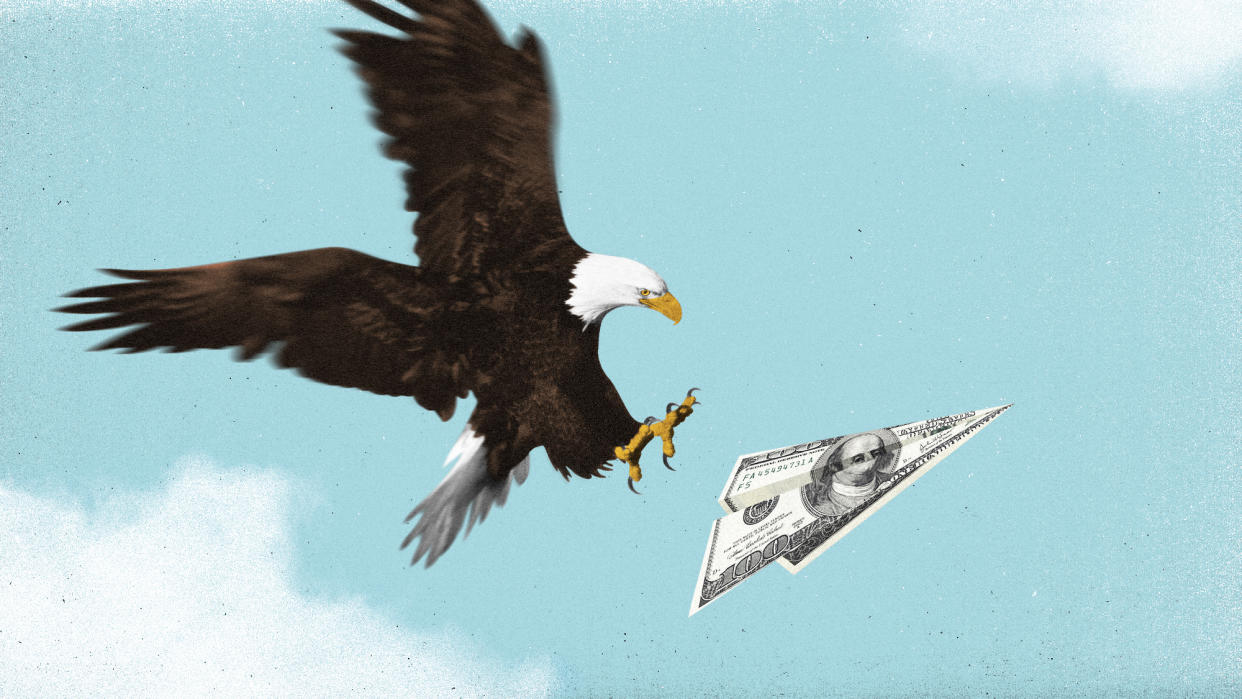How did America avoid a recession in 2023?

How on earth did America avoid a recession in 2023?
When the year began, an economic downturn seemed likely — if not inevitable. "This time last year, almost everyone was calling for a recession to engulf the U.S. economy in 2023," Bloomberg noted. One economic model put the odds of a recession at 100%. Instead, unemployment remains low and inflation (finally) is "pretty close" to the Federal Reserve's usual target of 2% a year. The Fed might even start cutting interest rates soon. The result is astonishing. "Here we are more than 12 months later and U.S. economic data keeps coming in relatively strong."
"America may have done the impossible: Avoid a recession," CNN reported. Why impossible? Because the Fed spent the last two years hiking interest rates to cool down inflation. That worked, but the last time it raised rates so high and so fast — during the early Reagan administration years — "it plunged the economy into the deepest recession since the Great Depression." To lower inflation without driving up joblessness has taken "a combination of luck and ingenuity."
A combination of factors was at play. Among them: "Energy prices fell back to Earth," The Washington Post reported. "A supply chain rebound helped cool prices for all kinds of goods." Also: People spent big on Taylor Swift tickets. (Really.) "We kind of assume that it will get harder from here," Fed chair Jerome Powell said last week. "But so far it hasn't."
What the commentators said
"Most economists now see a soft landing as the likeliest way this cycle ends, for good reason," Ethan Wu wrote for the Financial Times. But there are still a "few stragglers" who think recession is on the way. There are signs of a weaker job market — fewer job openings and surveys showing more workers saying jobs are "hard to get." And that "combination of luck and ingenuity" may be difficult to sustain: "It requires everything to go right simultaneously." So far, though, so good. "The consensus bet on soft landing is a good one, but by no means bulletproof."
"From an economic point of view, 2023 will go down in the record books as one of the best years ever," Paul Krugman argued at The New York Times. Economists who argued that inflation was transitory — "driven by disruptions caused by the Covid pandemic and Russia's invasion of Ukraine" — proved correct. "What happened in 2023 was that the economy finally worked out its postpandemic kinks."
There are some naysayers. "A recession is right around the corner," Steve H. Hanke and John Greenwood warned at National Review. Why? Because "money is the economy's fuel," but since March 2022 "the money supply has been dropping like a stone." That helped rein in inflation, but it also means "the economy is running on fumes." History shows that a contraction in the money supply leads to recessions. "It's time to buckle your seatbelts."
What next?
"The U.S. economy appears poised for a gentle 2024," The Star Tribune reported. But policymakers are still cautious. "Inflation is still too high, ongoing progress in bringing it down is not assured and the path forward is uncertain," Powell said at his news conference. Respondents to a survey from the National Association of Business Economics put the odds of a recession in 2024 at less than 50% — a major decline from a year ago. "I'm sure there will be some volatility and some ups and downs in 2024, but I'm optimistic for the year," said one observer.
Companies and investors are "bracing for a slowdown caused by tepid consumer demand," Reuters added. Major banks — Goldman Sachs, Morgan Stanley, UBS and Barclays — call for "constrained" economic growth in 2024, "but with low odds for a recession." But retailers like Walmart say they're cautious about the coming months. "They are biding their time and being cautious which makes sense," a Deutsche Bank analyst said. "And so if growth picks up, they will respond accordingly."


